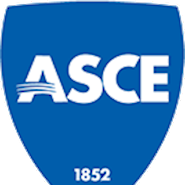
Vellore S. Gopalaratnam, P.E., F.ASCE, professor of civil and environmental engineering in the department of civil engineering at the University of Missouri–Columbia, has been named a fellow by the ASCE Board of Direction.
Gopalaratnam has made notable contributions in several areas of concrete research, bridge research, and STEM & Sustainability education in his more than 35 years as faculty at UM. Of significance are his seminal contributions in the closed-loop fracture testing of plain concrete, toughness testing of fiber-reinforced concrete, instrumentation of Missouri’s first High Performance Concrete bridge, and characterization of composite action of wearing surface systems on orthotropic steel deck bridges.
A paper he co-authored, “Softening Response of Plain Concrete in Direct Tension,” published in the ACI Journal (1985), has over 1,000 citations. This work opened the doors for stable fracture testing of concrete composites to better characterize the micromechanics and energy dissipation mechanisms in the failure of brittle composites.
He led the NSF-funded six-university project that made major challenges to the then-accepted norms on fracture toughness testing of fiber-reinforced concrete. The deficiencies identified by Gopalaratnam and his team resulted in the withdrawal of the ASTM C-1018 test standard for flexural toughness of fiber-reinforced concrete and the development of new test standards that include the use of a net-deflection measuring yoke. This better understanding of the impact of net-deflection measurements on fracture toughness measurements has greatly improved the ability to accurately characterize the material performance of different reinforcing fiber types and geometries.
The increased understanding of the layered-composite mechanics and fatigue performance of wearing surface systems on orthotropic steel bridge decks, based on his research, has demonstrated that it is possible to extend the fatigue life of steel orthotropic bridges. By developing analysis techniques that use the mechanical and thermal performance of several wearing surface systems, including polymer concrete, epoxy asphalt, and fiber-reinforced concrete, Gopalaratnam has shown that with thoughtful design, the optimization and the overall fatigue performance of orthotropic steel deck bridges can be greatly improved.
Gopalaratnam has also contributed to systematic improvements, over three decades, to the university’s civil engineering curriculum and teaching paradigms, including development and redesign of over 15 required, elective, and graduate courses; development of the interdisciplinary Minor in Engineering Sustainability program and the core course Introduction to Engineering Sustainability; and most notably the Mizzou Engineering STEM Scholars Program. This five-year, million-dollar project funded by the NSF, titled “Increasing Retention and Success of Students from Low-Income Backgrounds in Civil Engineering,” will provide a total of 32 two-year undergraduate scholarships spread over four years. Scholars selected for the program will also be given customized academic support, workforce and/or research training, and community outreach and engagement opportunities.
Gopalaratnam is a fellow of the American Concrete Institute (ACI) and is a registered professional engineer in Missouri. His doctoral degree is from Northwestern University.



